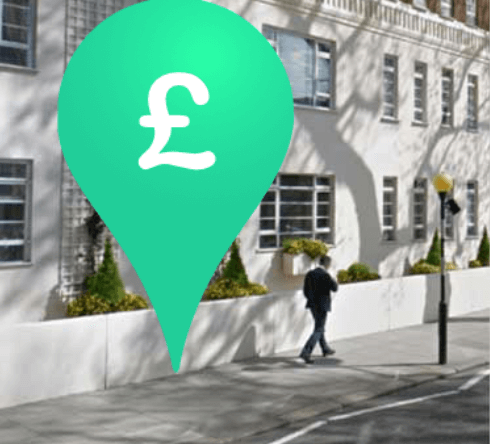
Emanuel Andjelic, Co-Founder and Chair, Squirrel
How Money and Mental Health’s research inspired Money Lockup
Overspending is a big problem for many people. Add in a mental health condition and the results can be devastating.
Money and Mental Health’s research found that 93% of people with mental health problems spend more when they are unwell. Mental health problems affect the way we think and feel. They can sometimes make shopping seem like the answer to our problems, or can lead to people giving away sums of money that they can’t afford.
My company, Squirrel, specialises in helping people to budget, save and avoid over-spending. But the recent success of the Shopper Stopper trial made me question whether there was more we could do.
Building an electronic version of my wife
One of the early inspirations for Squirrel was my nephew, Ermin. He kept spending all his money on pay-day, leaving nothing for the rest of the month. To try and change this, he asked my wife for help. He began paying his salary into her account each month and told her to manage it for him. That meant she put money aside for his weekly travel card. She held some back for things like his summer holidays and Christmas. She then gave him the rest as a weekly allowance so his money would last the whole month.
The Squirrel product we ended up building is like an electronic version of my wife. It’s a full blown budgeting system that’s improving people’s lives. I know that some of our customers also live with mental health problems. Yet when I read the Money and Mental Health report Seeing through the fog, about how mental health problems affect our financial capability, I realised we were only scraping the surface of the problem. I reflected on my own experience of having come very close to bankruptcy several years ago. I imagined how much worse it would have been had I been struggling with poor mental health.
Using tech to boost our self control
The Seeing through the fog report highlights five ways in which mental health problems can make it harder to manage money. The one we felt Squirrel was already closest to solving was impulse control. Squirrel savings pots only let users access money the next working day. For most customers this is enough of a break to discourage impulsive withdrawals. The weekly spending feature also stops people spending most of their money at the start of the month.
At first we thought we needed to bolster some of the existing Squirrel features. The team came up with a range of excellent ideas for ways to improve the impulse control elements. We tested these ideas with a target audience of impulsive spenders. The features themselves proved attractive, but the underlying budgeting system was overkill. It was like offering a Swiss Army knife to someone who only needed scissors.
It was back to the drawing board. We needed simplicity to be successful. We spent many hours listening to the stories of real people. We heard about many weird and wonderful solutions, some ingenious.
What inspired us?
My favourite story is from a delivery driver called Kieron. He could never save because he found it too easy and tempting to dip into his savings. His solution was to buy lots of London Underground Oyster cards which he kept in a box under his bed. You can buy these cards with a £5 deposit, which is refundable at a ticket office. In an emergency he could go home, get the cards and take them to the nearest tube station with a ticket office open to cash in. But he knew that he was unlikely to do all this when he was in the pub on a Friday night and most tempted to spend. The friction he had created for himself was enough to prevent impulse spending.
Stories like Kieron’s inspired the product we went on to build. It’s called Money Lockup and launched last week. Money Lockup is a place people can lock up their spare cash or savings so they aren’t tempted to spend them. Users choose a location they must travel to for access to their money. Once there, they withdraw their money using their phone. The idea is they choose a place they know they won’t be too easily tempted to go. That could be the at the top of a steep hill, a sister’s sitting room or under a bridge on the way to work.
If we can do it...
“nearly half of the 12 million consumers with mental health problems in the UK say they would like to set controls like spending limits for online retail.”
Money and Mental Health has given us the evidence we need to understand how to really help consumers to manage their money, particularly in periods of poor mental health. We’re a small company, but we listened and built a new tool to help. I look forward to seeing some of these corporate giants join us by building new controls into their own services too.
